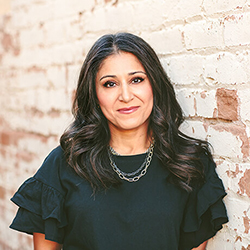Common Questions About COVID-19
University of Arizona College of Medicine – Phoenix Clinical Assistant Professor of Internal Medicine Negin Blattman, MD, answers common questions about the novel coronavirus (COVID-19).
What should I do if I can’t work from home?

Should worry if I am not in one of the vulnerable populations?
We should all worry because it is not about “me;” it is about “us.” Prevention of spread is a social responsibility that rests with each and every one of us. The life you cost may not be your own but has no less value or implication.
What should I do if I think I have contracted COVID-19?
Don’t panic. Stay home. Self-quarantine. Continue to wash your hands and stay away from public places where you can expose others. Do not run to your doctor’s office or an emergency room unless you are truly sick and need medical evaluation and care. Testing is still limited, so even if a physician suspects you have it, you may not be tested if you are not sick enough to need hospital care. We are not testing everyone because we don’t have enough testing capability right now. We need to test those who are really sick.
How can I protect myself?
Keep up on the current CDC recommendations.
How can I help my grandparents or elderly neighbors?
The best thing to do to protect them is to protect yourself from getting sick by following the recommendations from the CDC and minimizing your interactions with them. If you have grandparents or elderly neighbors that need help, make sure to keep your distance, wash your hands and minimize your visits to the least frequent and shortest amounts of time possible.